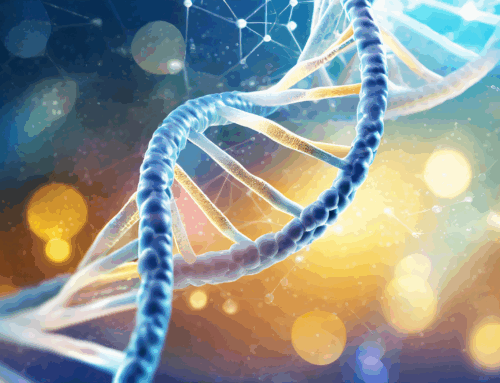Shingles, a painful viral infection caused by the reactivation of the varicella-zoster virus (the same virus that causes chickenpox), can be challenging to treat.
Mainstream physicians typically diagnose shingles through clinical evaluation, focusing on its characteristic rash and associated symptoms, such as pain and nerve involvement.
The conventional treatment approach often involves antiviral medications and pain relief strategies.
However, naturopathic doctors (NDs) and holistic practitioners often offer a complementary perspective, emphasizing the body’s self-healing capabilities through natural therapies.
Here’s how both these types of practitioners might approach the treatment of shingles similarly after receiving a physician’s diagnosis:
Focus on Immune System Support
Both naturopathic doctors and holistic practitioners recognize that shingles arise when the immune system is weakened, allowing the dormant virus to reactivate.
While they do not reject a physician’s diagnosis, they prioritize restoring immune function.
The diagnosis can often times better guide holistic approaches.
- Naturopathic Doctors and Holistic Practitioners: NDs and holistic practitioners may recommend natural supplements such as echinacea, elderberry, or astragalus to enhance immune function. Vitamin C and zinc supplementation are also common for boosting the body’s ability to fight viral infections. An ND might also assess the patient’s diet, encouraging nutrient-dense foods that are high in antioxidants to support immune strength.
- Holistic Practitioners: In addition to the naturopathic approach, holistic practitioners aim to strengthen the immune system through a broader range of modalities, such as energy healing (e.g., Reiki) or Bach flower remedies. They also often recommend lifestyle changes like stress reduction techniques, which can have a profound impact on the body’s ability to resist viral infections.
Stress Management and Mind-Body Techniques
Both naturopathic and holistic approaches emphasize the importance of managing stress, which is a known trigger for shingles outbreaks.
Chronic stress can weaken the immune system, making an individual more susceptible to infections.
An acute spike in stress can also dramatically weaken the immune system and trigger an outbreak.
- Naturopathic Doctors and Holistic Practitioners: NDs and holistic practitioners may incorporate stress-reduction strategies such as mindfulness practices, yoga, meditation, or breathing exercises. They may also suggest adaptogenic herbs like holy basil, ashwagandha or Rhodiola, which help the body adapt to stress and reduce its impact on the immune system.
- Holistic Practitioners: Holistic practitioners might take a more integrative approach, offering therapies like acupuncture or biofeedback to manage stress and promote relaxation. Mind-body modalities, including guided imagery or sound therapy, could also be part of their treatment regimen. Like NDs, they emphasize stress management as a critical component of overall healing.

Natural Pain Management
Shingles can be extremely painful due to nerve involvement (postherpetic neuralgia).
Both naturopathic doctors and holistic practitioners often seek natural solutions to alleviate this pain without relying on pharmaceuticals.
- Naturopathic Doctors and Holistic Practitioners: NDs and holistic practitioners might recommend topical applications such as capsaicin cream, which is derived from chili peppers and has been shown to reduce nerve pain. They may also suggest other anti-inflammatory supplements such as bio-absorbable turmeric, which has pain-relieving properties, or homeopathic remedies like Rhus toxicodendron for nerve pain.
- Holistic Practitioners: In addition to dietary changes or supplements, holistic practitioners often turn to bodywork therapies such as massage or acupuncture, both of which can help relieve nerve pain and discomfort. Essential oils such as lavender, tea tree, or eucalyptus may also be used topically or in aromatherapy to soothe pain and reduce inflammation.
Dietary and Lifestyle Adjustments
Both practices acknowledge the role of nutrition in managing shingles and promoting overall health.
- Naturopathic Doctors and Holistic Practitioners: NDs and holistic practitioners are likely to recommend a diet that reduces inflammation and supports the immune system. This includes foods rich in lysine, an amino acid that can suppress viral activity, while recommending reduced intake of arginine-rich foods (such as nuts and chocolate), which may exacerbate viral replication.
- Holistic Practitioners: Holistic practitioners may advocate for a similar dietary approach but often emphasize the importance of individual needs, potentially incorporating a broader view of diet and lifestyle. They might assess the patient’s emotional and spiritual well-being and how it impacts physical health, encouraging practices such as Bach flower remedies, mindful eating, or cleansing protocols to restore balance.
Supporting Overall Well-being
Both types of practitioners address not only the physical symptoms of shingles but also the emotional and psychological aspects.
- Naturopathic Doctors and Holistic Practitioners: NDs and holistic practitioners might address underlying health imbalances, offering a comprehensive treatment plan to prevent future outbreaks. This could include long-term immune support, hormonal balance, and digestive health, as a healthy gut is seen as critical to overall immunity.
- Holistic Practitioners: Holistic care typically involves balancing the mind, body, and spirit. Along with physical treatments, they might use therapies that promote emotional and mental well-being, believing that mental states like anxiety or depression can weaken the immune system. Bach flower remedies work to support and realign overall well-being.
Conclusion…
While naturopathic doctors and holistic practitioners may approach the treatment of shingles in slightly different ways, they share many common principles.
Both prioritize natural methods of healing, aim to boost the immune system, and use holistic strategies to support overall well-being.
Their approaches complement the conventional medical diagnosis of shingles, offering patients a broader array of tools to manage the condition and prevent future outbreaks.




